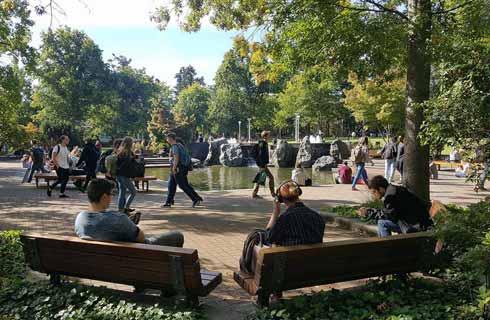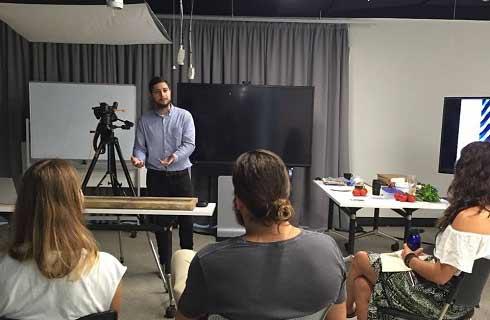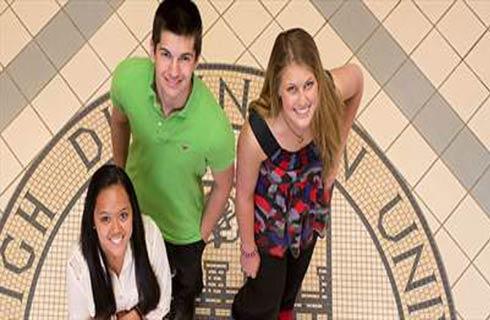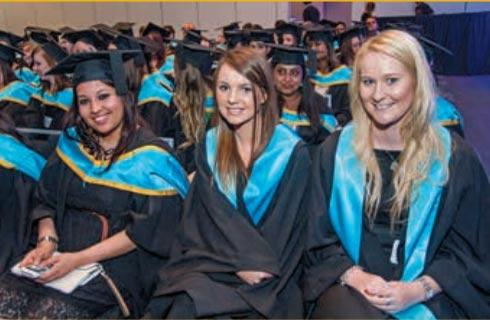国际学生入学条件
Specific entry requirements: 2.1 degree (or international equivalent) in a relevant subject. Applicants with a 2.2 degree will also be considered if they have higher marks in relevant modules, e.g. final year research project, final year modules in ecology/evolution/behaviour topics. Other relevant professional experience will also be considered. General Entry Requirements: You should usually hold a second-class honours degree (certain programmes may require a 2:1) from a recognised British or overseas university. Non-graduates with appropriate professional qualifications will be considered on an individual basis by Programme Conveners; Applicants will be expected to apply and register for the full master's award. Those with a third-class honours degree are encouraged to complete an application as we will consider an applicant's wider circumstances in making a decision on an application. IELTS Academic 7.0 overall with a minimum 6.5 in each component.
展开
IDP—雅思考试联合主办方

雅思考试总分
7.0
- 雅思总分:7
- 托福网考总分:60
- 托福笔试总分:160
- 其他语言考试:NA
CRICOS代码:
申请截止日期: 请与IDP联系 以获取详细信息。
课程简介
Designed for doctors, healthcare professionals and graduates, the Roehampton master’s in Ecology, Evolution and Behaviour (MSc) will help you develop your interest in living organisms by gaining the specialist skills needed to be a leader in your field.<br><br>By focusing on important insights into contemporary developments in ecology, evolution and behavour, you’ll become a confident, agile, independent thinker, with the ability to adapt rapidly to change. You’ll graduate with the knowledge and skills to:<br><br>undertake an independent research project in a topic within ecology, evolution or behaviour<br><br>project management<br><br>data analysis and communication<br><br>scientific project design<br><br>scientific reporting<br><br>grant writing<br>The ecology, evolution and behaviour of organisms are key elements of the natural world we see around us. Improving our knowledge of these topics is important in mitigating the impacts of environmental change, improving food and water security, increasing animal welfare and explaining the diversity of life we see across the globe.<br><br>Created in collaboration with industry-leading professionals, the Roehampton Ecology, Evolution and Behaviour includes important insights into contemporary developments, for a wide range of future careers.<br><br>Working in high-spec facilities, and excellent laboratories, you’ll also shape your studies around your own interests and aspirations, with modules including:<br><br>Health Research Methods<br>Research Project<br><br>The School of Life and Health Science is a progressive and inclusive community, putting you at the centre of your learning journey. Recognising that our students have different personal circumstances, we are committed to enabling you to balance your studies with work, family, and other external commitments.<br><br>You will undertake this research project with the support of a dedicated research-active supervisor who is an expert in the field. They will guide and support you as you develop and conduct your project, giving you the opportunity to take ownership of a piece of research that you are passionate about. Supervisors will be members of staff from the dynamic and vibrant research community within the School of Life and Health Sciences. This includes world-leading researchers from the Centre for Research in Ecology, Evolution and Behaviour and the Centre for Research in Evolutionary, Social and Interdisciplinary Anthropology. Details of potential supervisors and research projects can be found here. When you’re developing your application, you should in touch with a potential supervisor to discuss potential research project topics.<br><br>With the support and guidance of this supervisor, you’ll spend the full duration of the programme conducting your research project. This includes developing hypotheses and predictions, collecting data, analysing these data and presenting these data in a final written report. This final report includes a paper suitable for submission to a peer-reviewed scientific journal and a press release to promote your project's findings.
展开







 预科
预科 奖学金
奖学金 实习机会
实习机会 在校学习
在校学习 跨境学习
跨境学习 校园授课-线上开始
校园授课-线上开始 在线/远程学习
在线/远程学习













 德蒙福特大学
德蒙福特大学

 怀卡托大学
怀卡托大学

 奥克兰大学
奥克兰大学

 诺丁汉特伦特大学
诺丁汉特伦特大学

 布里斯托大学
布里斯托大学

 伦敦国王学院
伦敦国王学院









